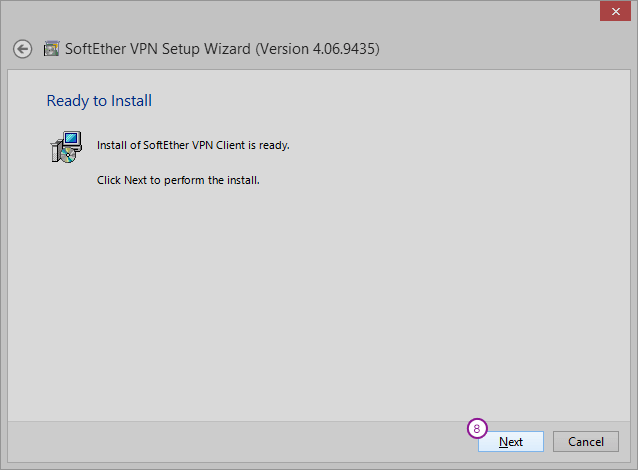Install Softether Vpn Client On Linux
- Install Softether Vpn Client On Linux Windows 7
- Softether Vpn Server Windows
- Softether Vpn Client Download
An article about how to setup SoftEther VPN Server on Ubuntu 16.04 Xenial Xerus Linux. Server side configuration et client side configuration. Run the VPN client which was installed on the previous step. Open Connect - Import VPN Connection Setting and select one or more configs from the downloaded archive. A new VPN chain will appear in the available connection list after config importing. The SoftEther Linux client has only a commandline interface. And it's not very comfortable. For a new 'linux user', it could be frustrating and you may get some trouble to set correct IP/route (depens on server-config, like is dhcp avaliable.) Just in summary. I would not use the SoftEther Client on a linux based PC. VPN Server/DEFAULTIPsecEnable IPsecEnable command - Enable or Disable IPsec VPN Server Function Enable L2TP over IPsec Server Function (yes / no): yes Enable Raw L2TP Server Function (yes / no): no Enable EtherIP / L2TPv3 over IPsec Server Function (yes / no): no Pre Shared Key for IPsec (Recommended: 9 letters at maximum):. Default Virtual HUB in a case of omitting the HUB on the.
Download SoftEther VPN Client from the official site selecting your platform and CPU: http://www.softether-download.com/en.aspx?product=softether
* current selection is for linux 64bit OS.
Now your VPN should be connected. Please note, under linux - the routing table is not automatically modified by SoftEther Client and you need to manually tweek your routing information to make your vpn connection to route all traffic. Also, you will need to enable ip forward option in '/etc/sysctl.conf':
and load with command:
In this post, I will show you how to dial-in any SoftEther VPN server.
Install Softether Vpn Client On Linux Windows 7
After this, you can connect to your Linode VPS from almost all Linux systems.
Contents
- 2 Configuration
- 2.3 Manage the Client
Preparation
- SoftEther VPN Source Code download link
Configuration
This post are tested in Gentoo Linux, it should also works for almost all Linux distributions.
Install SoftEther VPN
Same as introduced before, please follow the link.
Start the Client
Before configuring the client, we must start it as a daemon, it’s just a simple command:
Softether Vpn Server Windows
Manage the Client
Connect to the client via command line
Here, we using the vpncmd command line management utility to configure the VPN client:
Create a NIC (virtual network adapter)
We will create a adapter named “fulong”.
If it reported an issue, please check have you enabled TUN in your kernel configuration:
Create a account (VPN connection)
Except the NIC, you also need to special which user uses to connect which VPN server’s which hub, now let’s create a account.
Suppose your VPN Server IP address is 203.0.113.1, please replace it with your real IP address.
Softether Vpn Client Download

Connecting to Server
Now, let’s connect to the VPN server, and check if it connected successful:
If you can see these text above, congratulations, you are already connected to the server.
Set automatically connect
One more thing, set the connecting automatic connect when the client daemon start.
Now, you have settled up a VPN connection to your VPN server on your Linux, and it will automatically connect when the VPN client daemon start.
What’s Next?
Next, you can setting up an layer 2 network with your Linode VPS, or using your VPN server as a gateway to explore the Internet.